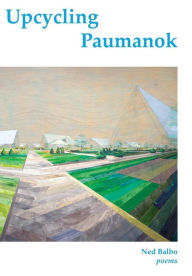After Isaac Bashevis Singer’s “Gimpel the Fool”
One day, after a period of mourning
for the colleagues who had been forced out
before me on some technicality
embedded in our contracts like a bomb,
the Spirit of Evil rose before my window,
passed through glass and, smiling, clicked his tongue.
“How can you sleep, Professor? Don’t you know
that after twenty years your time’s run out?
Though Frampol University once pledged
secure employment for a job well done,
today’s contingent faculty are fired
on a whim. Get up and pack your things!”
I jerked awake, turned from the screen, and blanched,
my guest’s sharp tail swinging impatiently.
It wasn’t the first time he’d appeared here,
this Spirit of Evil, horned, goat-bearded, sly.
Faced with five first-year courses per semester,
stacks of grading, low pay, less respect,
I’d weakened, tempted by his murmured words,
“Why work so hard? Just offer empty praise—
Be entertaining—that’s not hard for you—
Above all, don’t dare challenge their beliefs
or cast in doubt their chance to get an A.
Your popularity will hit the roof!”
I’d wavered—but my students’ faces hovered,
smooth or pimply, freckled, bright or dim,
kids far from home, eager to start new lives,
they’d turned to me. I couldn’t let them down.
“I bet you wish you’d listened to me then,”
he hissed, his sharp teeth jagged in a grin
not quite a grin, persuasive as I saw
the junk that I’d collected through the years—
outdated syllabi, long-yellowed texts—
So much to pitch or save . . . But who’d save me?
I’ve never been a man to hold a grudge—
An orphan, I’m well practiced in acceptance
of the toil deserving people shun,
disparage, scoff at, then assign to me,
but when I thought back on the tales I’d heard
from provosts proud to claim benevolence,
I had to wonder: what did they believe?
—Gimpel, at Frampol University
everyone’s valued, even you, despite
your lowly adjunct’s pay; everyone’s welcome
to speak freely here, though adjuncts’ jobs
can blow away like smoke in seconds flat.
If someone you displease holds rank above you,
be assured: no one will act unkindly,
though due process isn’t guaranteed.
Oh, and Gimpel—there’s a fair in heaven,
A cow flew over the roof and laid brass eggs.
The dead have risen at the ram’s horn blast—
Don’t worry—your next contract’s on the way.
—Suddenly, I felt capable of all
my sinister intruder might suggest
now that the veil was pulled from truth and lies—
“And yet, devil or dybbuk, should his will
rule mine?” I thought. “What waits beyond these walls,
this office not yet emptied, too soon filled
by younger adjuncts hired for even less?”
He heard: “What nonsense! Nothing waits for you—
No world to come, no job. Even your colleagues
safely tenured soon will find themselves
crushed by decrees enacted while they sleep.”
That’s when I left for good, last class be damned.
Whatever the Spirit of Evil had in mind,
I left him to pursue his noxious errands
skulking in the shade of other desks
where he could whisper new strategic plans—
tone-deaf pronouncements, layoffs, budget cuts
to deans who bow before the bottom line
that rules their faith and sets their conscience free.
As for me, what’s past is like a dream
glimpsed from a bed of straw . . . From town to town
I wander the world, chalked blackboards half-erased,
in search of purpose, parking, office space,
young faces baffled, blank yet listening
as I spin tales, outlandish words, strange things
but—God be praised—I cannot be deceived.

Ned Balbo is the author of The Trials of Edgar Poe and Other Poems (awarded the Poets’ Prize and the Donald Justice Prize), Lives of the Sleepers (Ernest Sandeen Prize and ForeWord Book of the Year Gold Medal), Galileo’s Banquet (Towson University Prize co-winner), and Upcycling Paumanok. The recipient of a National Endowment for the Arts translation fellowship, three Maryland Arts Council grants, the Robert Frost Foundation Poetry Award, and the John Guyon Literary Nonfiction Prize, he has held fellowships or residencies at the Sewanee Writers’ Conference, the Vermont Studio Center, and the Virginia Center for the Creative Arts. “Gimpel the Fool” appears in Balbo’s most recent book, 3 Nights of the Perseids, selected by Erica Dawson for the Richard Wilbur Award.



No Comments